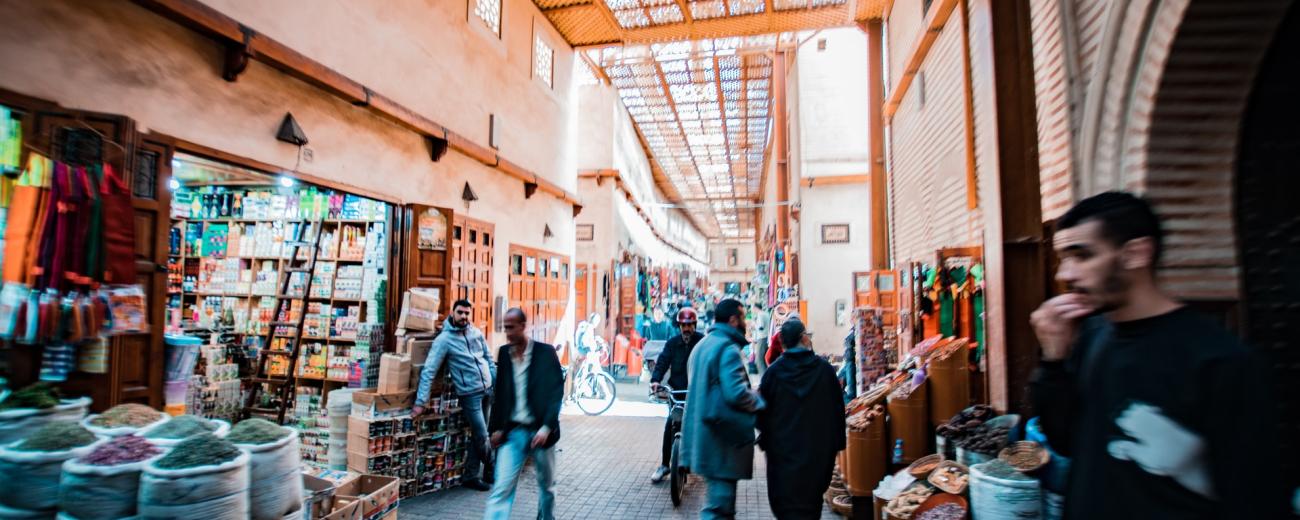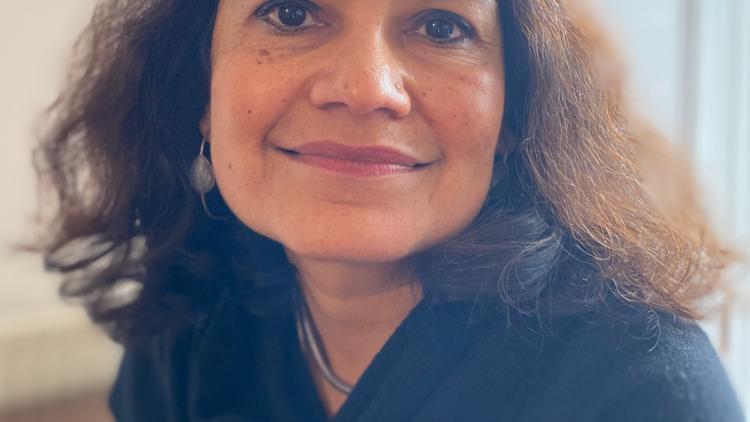BA Social Anthropology


Key information
- Duration
- 3 years, single honours degree
- Start of programme
- September
- Attendance mode
- Full-time
- Location
- Russell Square, College Buildings
- Fees
-
Home student fees: £9,250
Overseas student fees: £21,990Please note that fees go up each year.
See undergraduate fees for further details. - Course code
- UGSF0004
- Entry requirements
-
ABB
Contextual: BBB
-
Austria: Reifeprufungszeugnis / Maturazeugnis: four subjects at 1, 2, 2, 2
A Level equivalent: ABB
Contextualised offer: BBB -
Belgium: Diploma van Secundair Onderwijs: 75% (7.5/10, 15/20) overall
A Level equivalent: ABB
Contextualised offer: BBBInformation for prospective students from Belgium
-
Bulgaria: Diploma za Zavarsheno Sredno Obrazovanie: 5.3 and 5.0 in two State Maturity Exams
A Level equivalent: ABB
Contextualised offer: BBB -
Canada: High School Diploma: 80% with 5 acceptable Grade 12 subjects (most territories).
British Columbia: AABBB in Grade 12 courses.A Level equivalent: ABB
Contextualised offer: BBBInformation for prospective students from Canada
-
China: Senior Secondary Graduation Certificate + Gaokao: 78% overall in Gaokao PLUS 85% overall in Senior Secondary School Graduation Certificate (year 11 and 12)
A Level equivalent: ABB
Contextualised offer: BBBInformation for prospective students from China
-
Croatia: Matura Certificate: 4.5 overall with 5 in 1 Higher level subject
A Level equivalent: ABB
Contextualised offer: BBB -
Cyprus: Apolytirion with 2 A-Levels: Apolytirion 18/20 + A-level grades BB
A Level equivalent: ABB
Contextualised offer: BBB -
Czech Republic: Matura Certificate: 1, 2, 2, 2
A Level equivalent: ABB
Contextualised offer: BBB -
Denmark: Studentereksamen; Hojere Forberedelseseksamen; Hojere Handelseksamen; Hojere Teknisk Eksamen: 7 plus 10, 7, 7 in three Level A subjects
A Level equivalent: ABB
Contextualised offer: BBBInformation for prospective students from Denmark
-
Estonia: Gümnaasiumi lõputunnistus with the Riigieksamitunnistus: 4.0 with 85%, 80%, and 80% in 3 state exams
A Level equivalent: ABB
Contextualised offer: BBB -
Finland: Ylioppilastukint / Studentexamen: four subjects at 6, 5, 5, 5
A Level equivalent: ABB
Contextualised offer: BBB -
France: French Baccalaureat or Option Internationale du Baccalauréat (OIB): 13/20
A Level equivalent: ABB
Contextualised offer: BBBInformation for prospective students from France
-
Germany: Abitur: 1.8
A Level equivalent: ABB
Contextualised offer: BBBInformation for prospective students from Germany
-
Greece: Apolytirion of Geniko Lykeio with Pan Hellenic exams: 18/20
A Level equivalent: ABB
Contextualised offer: BBBInformation for prospective students from Greece
-
Hong Kong: Hong Kong Diploma of Secondary Education: 544 in two electives and one core (all other subjects grade 3)
A Level equivalent: ABB
Contextualised offer: BBBInformation for prospective students from Hong Kong
-
Hungary: Matura (Erettségi): 4.5 overall
A Level equivalent: ABB
Contextualised offer: BBB -
Iceland: Stúdentspróf: 7.5
A Level equivalent: ABB
Contextualised offer: BBB -
India: Standard XII: 75% (CBSE, CISCE, Tamil Nadu, Maharashtra & West Bengal boards), 80% (all other state boards)
A Level equivalent: ABB
Contextualised offer: BBBInformation for prospective students from India
-
Ireland: Irish Leaving Certificate: H1, H2, H2, H3, H3
A Level equivalent: ABB
Contextualised offer: BBB -
Israel: Bagrut: Overall grade of 7, 80% with 3 subjects at 5-unit level
A Level equivalent: ABB
Contextualised offer: BBBInformation for prospective students from Israel
-
Italy: Diploma Consequito con L’Esame di Stato: 80% overall
A Level equivalent: ABB
Contextualised offer: BBBInformation for prospective students from Italy
-
Latvia: Certificate of General Secondary Education: 88% in four State subject exams
A Level equivalent: ABB
Contextualised offer: BBB -
Lithuania: Brandos Atestatas: 8.5/10 and 90%, 85%, 85% in three State Exam
A Level equivalent: ABB
Contextualised offer: BBBInformation for prospective students from Lithuania
-
Malta: Advanced Matriculation Certificate: AB (Advanced) + BBB (Intermediate)
A Level equivalent: ABB
Contextualised offer: BBB -
Netherlands: Voorbereidend Wetenschappelijk Onderwijs: 7.5 overall with 8, 8, 7, 7 in four subjects
A Level equivalent: ABB
Contextualised offer: BBB -
Norway: Vitnemål vidergaende opplaering: 4.3 overall
A Level equivalent: ABB
Contextualised offer: BBBInformation for prospective students from Norway
-
Poland: New Polish Matura: 75% in three Advanced Level subjects
A Level equivalent: ABB
Contextualised offer: BBBInformation for prospective students from Poland
-
Portugal: Diploma de Ensino Secundario: overall 17.5/20
A Level equivalent: ABB
Contextualised offer: BBB -
Romania: Diploma de Bacalaureat: 8.5 overall
A Level equivalent: ABB
Contextualised offer: BBBInformation for prospective students from Romania
-
Singapore: Polytechnic Diploma (Nanyang, Ngee Ann, Singapore, Temasek and Republic Polytechnic): GPA 3.3
A Level equivalent: ABB
Contextualised offer: BBBInformation for prospective students from Singapore
-
Slovakia: Maturitná skúška / Maturita / Vysvedčenie o maturitnej skúške: four subjects at 1, 2, 2, 2
A Level equivalent: ABB
Contextualised offer: BBB -
South Africa: National Senior Certificate: 77666
A Level equivalent: ABB
Contextualised offer: BBBInformation for prospective students from South Africa
-
Spain: Curso de Orientación Universitaria / Título de Bachillerato: 7.5
A Level equivalent: ABB
Contextualised offer: BBBInformation for prospective students from Spain
-
Sweden: Slutbetyg / Examensbevis från Gymnasieskolan: A in 1200 credits and no grades below D / 18 / mainly B overall (MVG/VG)
A Level equivalent: ABB
Contextualised offer: BBB -
Switzerland: Federal Maturity Certificate: 4.5
A Level equivalent: ABB
Contextualised offer: BBB -
Tanzania: Advanced Certificate of Secondary Education: ACSE with BBB in 3 principle subjects
A Level equivalent: ABB
Contextualised offer: BBB -
Trinidad and Tobago: CAPE: Six CAPE units with grade 2 (+two double-unit courses)
A Level equivalent: ABB
Contextualised offer: BBB -
Turkey: Lise Diplomasi: 78-83% (depending on high school)
A Level equivalent: ABB
Contextualised offer: BBB -
USA: High School Diploma plus ACT, SAT, or AP exams:
-
High School Diploma GPA 3.0 plus SAT 1280 or ACT 27 and 2 AP's at 4,4
or -
High School Diploma GPA of 3.2 plus 2 AP's at 4,4
or -
High School Diploma GPA 3.4 plus SAT 1300 or ACT 29
or -
2-year Associate degree GPA 3.1
A Level equivalent: ABB
Contextualised offer: BBB -
-
See undergraduate entry requirements and English language requirements for international and alternative entry requirements.
Course overview
The BA Social Anthropology degree explores what it is to be human in a complex and changing world.
You will study the great variety of beliefs and practices that exist around the world, from remote communities to global cities. You will learn theoretical frameworks and question your own assumptions, helping you to think creatively about how to address global problems.
Bridging the humanities and social sciences, anthropology offers a unique approach grounded in real-world research allowing for a greater understanding in cultural differences, political dynamics, social conflict, and human creativity.
Studying at SOAS is unique as it draws from the regional expertise of our academics in Asian, African, and Middle Eastern languages and societies. If you are passionate about understanding human society and behaviour, and want to learn to think critically about the world around you, then this Anthropology course is for you.
Why study Social Anthropology at SOAS?
- we are ranked 5th in the UK and 12th in the world for Anthropology (QS World University Rankings 2023).
- we are ranked 4th in the UK (2023 Times/Sunday Times League Table).
Structure
Students take 120 credits per year composed of compulsory and optional modules.
All students are expected to complete all compulsory modules.
Students are entitled to select up to 30 credits of Open Option modules per year. These modules can be in anthropology or based in other departments within the School, either in another subject or a language option.
Important notice
The information on the website reflects the intended programme structure against the given academic session. The modules are indicative options of the content students can expect and are/have been previously taught as part of these programmes. However, this information is published a long time in advance of enrolment and module content and availability is subject to change.
Year 1
Compulsory modules
Students will take the following compulsory modules (90 credits in total):
Guided options term 1
Students take the following guided option or a 15 credit module from the language open options.
| Module | Credits |
|---|---|
| 150 Mind at University | 15 |
Guided options term 2
Students take one 15 credit module from the following guided options or a 15 credit module from the language open options list.
| Module | Credits |
|---|---|
| 190 Year 1 Seminar: Explorations in Anthropology | 15 |
| Languages of the World | 15 |
| Decolonising Pop: K-Pop and Beyond | 15 |
Year 2
Credits must be taken in the following combination:
- 45 credits from Year 2 compulsory modules and
- 45 credits from Year 2 guided options and
- Maximum of 30 credits from second year open options (language open options and non-language open optons)
Compulsory modules
Students will take the following modules (45 credits in total):
| Module | Credits |
|---|---|
| 211 Anthropology Through History | 15 |
| 212 Theory in Anthropology | 15 |
| 213 Ethnography in Practice | 15 |
List A regional modules
Students will take 15 credits from List A
Note: the other regional module may be taken as a guided option under List B.
List B guided options
Students will take a minimum of 30 credits from List B and a maximum of 30 credits from second year open options (language open options, and non-language open options).
Year 3
Credits must be taken in the following combination:
- 30 credits from Year 3 compulsory modules and
- 60 credits from Year 3 guided options and
- Maximum of 30 credits from Year 3 open options: language open options and non-language oipen options
Compulsory modules
Students will take the following modules (30 credits in total):
| Module | Credits |
|---|---|
| 401B Concepts in Anthropology (B) | 15 |
| 401A Concepts in Anthropology (A) | 15 |
Guided options
Students will take between a minimum of 30 credits from List A and a minimum of 30 credits from List B.
List A
- Directed Readings in Anthropology can be taken in Term 1 or Term 2 (not both)
- If Regional Perspectives in Anthropology (I) or (II) is taken in Year 2 it cannot be taken again in Year 3
And
Maximum of 30 credits from Third year open options language and non-language open options.
Teaching and learning
The academic staff in the Department of Anthropology and Sociology are dynamic, experienced teachers who are widely recognised for their expertise and enjoy working directly with students. Renowned scholars from other institutions also come to share their knowledge. The SOAS Anthropology Department sponsors several lecture series that are open to students, including the weekly Departmental Research Seminar, the Food Studies Centre's Food Forum and the Centre for Migration and Diaspora Studies’ Seminar Series.
In addition to these formal settings for learning, our students also learn from one another. Hailing from around the globe, their diverse life experiences make our classes an exciting, rich environment for cultural and intellectual exchange. Students also benefit from campus-wide programmes, clubs, study groups, and performances.
The modules are taught by lectures and group discussions. Students become active in class through their reading and essay-writing as well as their participation in discussion groups. Whatever the topic, modules draw particularly on ethnographic studies of China, Japan, South East Asia, South Asia, the Near and Middle East, West Africa and East Africa, as well as their diasporas.
Independent Study Project (ISP)
The ISP can be taken by final-year students only. This is an opportunity for students to conduct original anthropological research on their own initiative, to engage in in-depth analysis of particular subjects and to undertake ethnographic fieldwork and/or library-based research. It is supported by a bi-weekly seminar on anthropological research and writing and is assessed by a single 10,000-word dissertation (including notes but excluding bibliography).
SOAS Library
SOAS Library is one of the world's most important academic libraries for the study of Africa, Asia and the Middle East, attracting scholars from all over the world. The Library houses over 1.2 million volumes, together with significant archival holdings, special collections and a growing network of electronic resources.
Pre-entry reading
- Eriksen, Thomas H. 2015 Small Places, Large Issues: An Introduction to Social and Cultural Anthropology, Pluto Press.
- Astuti, Rita, et al (eds.) 2007. Questions of Anthropology. Oxford: Berg.
- Engelke, Matthew 2017. Think Like an Anthropologist. Pelican.
- Abu-Lughod, Lila. 2015. Do Muslim Women Need Saving? Harvard University Press.
- Fassin, Didier. 2013. Enforcing Order: An Ethnography of Urban Policing. Polity Press.
- Kate Fox 2014. Watching the English: The Hidden Rules of English Behaviour. Stodder & Houghton.
- Macclancy, J. 2002. Exotic No More: Anthropology on the Front Lines. Chicago: University of Chicago Press.
- Das, V. 2006. Life and Words. Violence and the Descent into the Ordinary. University of California Press.
Fees and funding
Fees for 2023/24 entrants per academic year
| Programme | Full-time | |
|---|---|---|
| Home students | Overseas students | |
| BA, BSc, LLB | £9,250 | £21,160 |
| BA/BSc Language year abroad | £1,385 | £10,580 |
Please note that fees go up each year. See undergraduate fees for further details.
Employment
Students from SOAS’ Department of Anthropology and Sociology develop an in-depth understanding of the world. Employers value our graduates’ cultural awareness and global perspective, as well as their skills in analysis, data interpretation and problem-solving.
Recent graduates have been hired by:
- Allen & Overy
- BBC
- British Council
- Deloitte
- Hackney Migrant Centre
- IFAD (International Fund for Agricultural Development)
- IOM- UN Migration
- Media 52
- New York Times
- Social Mobility Foundation
- The Week
- UNICEF
- United Nations Development Programme
- World Bank Group
Find out about our Careers Service









